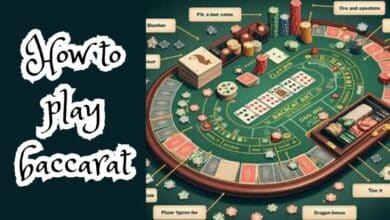Everything You Need to Know About Poker

In the family of card games known as poker, players bet, bluff, and use strategy to win. Poker can be played using a conventional 52-card deck with two players or more. Poker comes in various forms, each with its own poker rules and tactics. Texas Hold ’em, Omaha and Five Card Draw are the most well-liked variations.
Texas Hold ’em
The world’s most popular poker variant is Texas Hold ’em. In addition, many poker tournaments, including the World Series of Poker, use it as their main event. Each player in Texas Hold ’em is dealt two-hole cards, which are face down. The flop (three cards), turn (one card), and river (one card) are the next three rounds in which the five community cards are dealt face-up on the table. After the final round of betting, the player with the best hand wins.
Omaha
Another well-liked poker variation that resembles Texas Hold ’em but has some distinctions in Omaha. Each player in Omaha is dealt four “hole cards,” which are face down. Then, like Texas Hold ’em, five communal cards are dealt face up on the table. Omaha can be played in various ways, such as Omaha Hi-Lo, where the highest and lowest hands compete for a portion of the pot.
Five Card Draw
One of the earliest and most straightforward poker games is five-card draws. For enjoyment, people frequently play it at home or online. Each player in Five Card Draw is dealt five cards, face down. The player with the most substantial five-card poker hand wins the pot.
Poker Hand Rankings
You must understand the order of poker hands regardless of the variation of poker you play. Five cards make up a poker hand, which can be compared using a standard ranking scheme. The order of poker hands, from highest to lowest, is as follows:
Royal Flush: A, K, Q, J, and 10 cards in the same suit.
Straight Flush: Five cards of the same suit dealt in a row.
Four of a kind: This is a set of four identical cards.
Full House: Three cards of one rank and two cards of another rank constitute a full house.
Flush: Five cards of the same suit comprise a flush.
Straight: Five cards dealt in a row that are different suits
Three of a kind: This is a set of three identical cards.
Two Pair: Two cards of one rank and two of a different rank make up a pair.
The pot is distributed among players who hold precisely the same hand. The person with the better ranking cards wins if two or more players have the same hand. For instance, a flush with an ace triumph over a flush with a king.
Tips and Strategies
Poker is a combination of a skill-based game and a game of chance. You must master some fundamental poker techniques and ideas to improve your decision-making and increase your winnings. Here are some general poker advice and tactics that can be used in the majority of poker games:
Know your place:
Your decisions and actions are influenced by where you sit at the table. The later you participate in a betting round, the more knowledge you have about the hands and moves of your rivals. As a result, when you are in a late position, you can play more hands and be more aggressive, and when you are in an early position, you can play fewer hands and be more cautious.
Know your odds:
Based on your hand and circumstances, your odds are the likelihood that you will win the pot. To evaluate whether it is profitable to call a wager or not, you must understand how to calculate your implied odds (the possible money you can earn if you hit your draw) and your pot odds (the ratio of the money in the pot to the money you need to call). To determine whether it is profitable to bet or raise, you must also understand how to assess your equity.
Know your opponents:
Understanding your opponents is essential to succeed at poker. You must watch for their trends and patterns, such as how frequently they bluff, raise, fold, and bet, and utilize that knowledge to your advantage. Additionally, you must modify your approach and tactics in light of the varieties and levels of expertise of your rivals.
Know Yourself:
Your personal psychology and emotions may impact your poker performance and outcomes. To become a better player, you must be conscious of your strengths and weaknesses, including the hands you play well or poorly, the circumstances you feel comfortable or uneasy in, etc. You must also learn to regulate your emotions to avoid tilt, which can cost you money and confidence. Tilt is when you play poorly out of irritation or rage.
- Best Online Poker Tools Which Will Help You To Win Game
- What Type of Poker Player Are You? Understanding the 6 Different Styles
Conclusion
Poker is a challenging and entertaining game that, if played effectively, can provide you enjoyment and financial gain. You can become a better and more assured poker player by knowing all there is to know about poker rules, poker hands rankings, and poker tips and techniques. Remember to practise your abilities with free or low-stakes games before moving on to more enormous stakes and complex difficulties. Enjoy yourself and luck at the tables!






